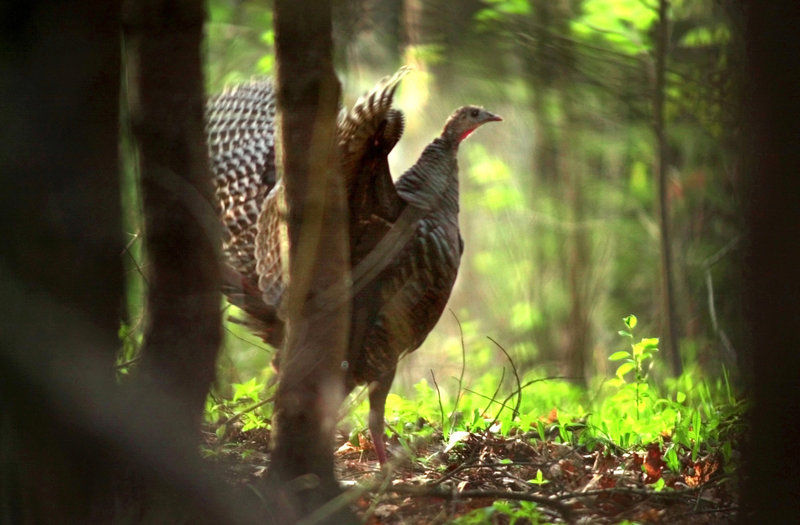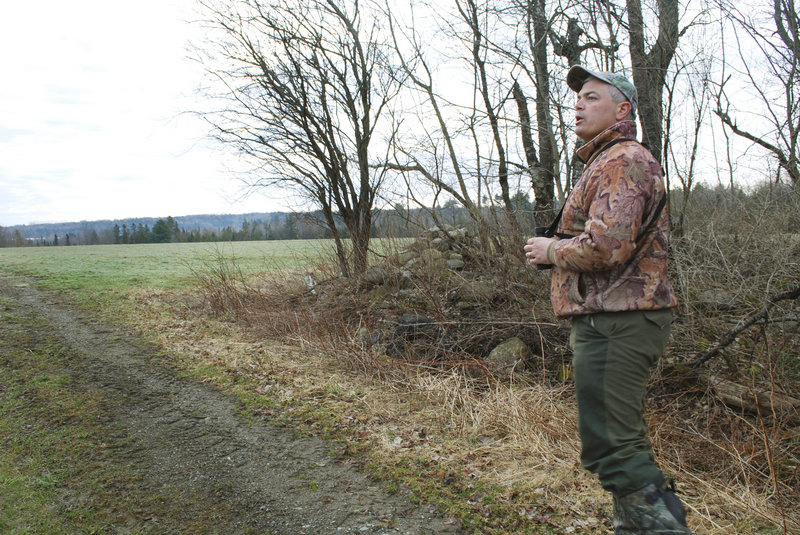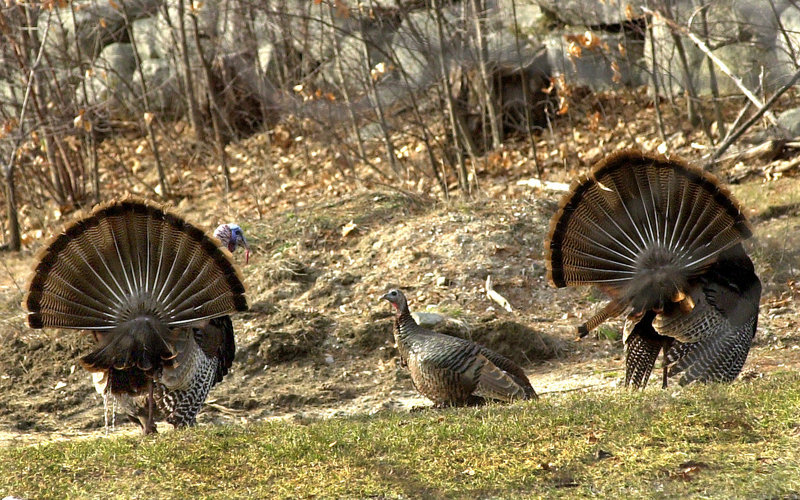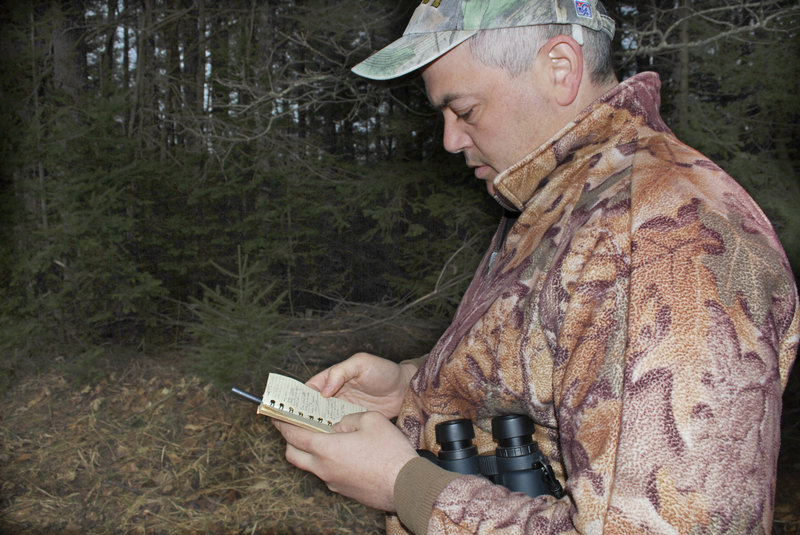UNITY – In a field amid dozens of farm fields in Unity, the turkeys in the distance just before dawn were invisible to the naked eye. The birds blended in with the stubby corn stalks in the mowed field, the lean blue-gray heads camouflaged against the stiff stalks.
“You need to have your binoculars, big time,” said hunter Joe Saltalamachia as he scanned the corn field a week before the spring hunt’s opening day.
Saltalamachia is not a registered guide, but he guides up to nine friends on turkey hunts each spring with great success. He knows where the turkeys are because he works at it.
“I don’t want to leave to chance remembering where I’ve seen them,” he said as he jotted down descriptions of the four birds in his small notebook at 6 a.m.
Today, it’s hard to imagine Maine without turkeys. Overhunting and other factors decimated the flock before its reintroduction. When the hunt returned to Maine in 1986, it had been more than a century since the bird was hunted here.
The population has grown to 60,000 birds, according the the Maine Department of Inland Fisheries and Wildlife, and now spreads as far north as Portage, just south of Fort Kent.
With that, the spring hunt has continued to expand — with a two-bird bag limit added last year and hunting districts opened in Washington County this year.
“It’s exceeded most people’s expectations as far as numbers of birds and the current range of the birds,” said regional wildlife biologist Scott Lindsay with the Department of Inland Fisheries and Wildlife.
“We have them now in every county. They have certainly done well, beyond where everyone thought climate would be the limiting factor.”
But the number of permit holders has not increased. And while the reasons for that are uncertain, many of the roughly 20,000 turkey hunters in Maine don’t mind.
“It has a very high success rate,” Saltalamachia says with wide eyes.
In 1996, the spring wild turkey hunt expanded to the farm fields around Waldo and Knox counties, drawing turkey hunters to this fertile ground. That hasn’t changed.
With vast rolling farmland flanked by thick woodlands, this remains one of the turkey hunting hotbeds in the state.
When Saltalamachia hears the first gobble in the woods or from a field in this farm country, it’s a call to good times.
“I have an illness,” he said of his passion. “Deer hunting is first, but turkey hunting is first-and-a-half. It’s a close second.”
He starts waking up with the sun to get ready for the season, and is out scouting by 5:30 a.m.
“You’ve got to be able to get up. For a lot of people that’s very difficult. It’s a hunter’s worst enemy, to get that tired, then that’s it. I’ve sat in the woods and fallen asleep against a tree,” Saltalamachia said.
In the weeks before opening day, he visits all the spots where he has landowner permission, and walks a few miles to get in shape for the hunting ahead.
In the first four days of scouting, Saltalamachia saw 16 birds. In 45 minutes of scouting last Monday, he found seven birds in two fields.
At the start of the turkey breeding season in April, he tests his turkey calls to see what works and to find where the birds are moving. A variety of calls can work, from a coyote, crow, fox or owl call to a hen, tom or shock call, which the birds answer to out of sheer distraction.
But the week before the season starts, Saltalamachia doesn’t call the birds. He lets them be.
Instead, he “fine-tunes” his scouting knowledge, making certain he can locate birds. He writes down where he sees them, how many he sees, and the ages of the birds he finds.
It’s hard hunting in an area that faces a lot of pressure from hunters. Saltalamachia doesn’t mind.
“I need a Plan A and a Plan B, C, D, E,” he says with a smile.
So he doesn’t mind picking his way through the well-trampled farm fields and muddy trails around Unity and Thorndike. And Saltalamachia now has access to some 4,000 acres at a “handful” of farms.
He needs it because of the popularity of the hunt in the midcoast.
“The ideal hunt for any hunter, really, is to go out and in 20 minutes to hear a bird and call it in and call it in and call it in, just like it’s on a string,” he said.
Staff Writer Deirdre Fleming can be contacted at 791-6452 or at:
dfleming@pressherald.com
Send questions/comments to the editors.







Comments are no longer available on this story